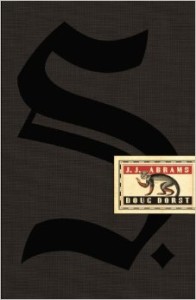I’ve got a few things I’d like to relay to various past versions of myself.
To eighteen-year old me:
You love reading. You do it all the time, especially when you should be doing other things, like paying attention in biology, or sleeping (though, granted, that’s hard to do when you’re reading Stephen King). Half the time you’re not reading, you’re daydreaming about fantastical worlds, places, and people. Sometimes you even open up a word file and type a few sentences to start off a story.
Why then, have you decided you can’t be a writer? I know you think it’s magic, that it requires patience and care you don’t have, but you’re wrong. Writing is a skill like anything else. That it looks like magic at the end is a function of the time and work the authors put into developing it. You can do that too, if you only believe it’s possible.
Sure, maybe you don’t have time, with college just around the corner. But if you aren’t going to start writing now, make sure it’s for the right reason, and not because you’ve given up before you’ve started.
To twenty-seven year old me:
Great, you’ve just written your first novel! It has a plot, an opening, something vaguely resembling a middle, and a climax. You know it’s not exactly a Hugo winner, but you’re proud of it, and man, now you’ve got a plan and a schedule. Four practice novels a year for three years. Add in some critiquing, self-reflection, and a few workshops, and you think you’ll have it made!
The optimism is admirable, but it should be measured. There are difficulties in writing you don’t get yet, and you’re raising the bar so high it’s going to be hard not to fail to reach it. Again, it’s okay to stretch – but be sure you know you’re stretching. Writing is hard. Make sure you give yourself the time to appreciate that before declaring yourself the next Brandon Sanderson.
Finally, the immensely wise future-me has been kind enough to step in and give yesterday’s me some advice:
Yeah, your planned weekend of writing turned out mediocre, at best. Sort of like the rest of the year’s writing sessions. And yes, it hurts. You’ve got some hard problems to work through that you’re not going to solve over night. But remember that you have a vision and that people believe in you. It’s not going to become any easier, but every day you write – even when it seems like the writing sucks – is a day closer to the novel you know you’re capable of being done.
And don’t forget to have fun. After all, that’s the reason you started doing this in the first place.

